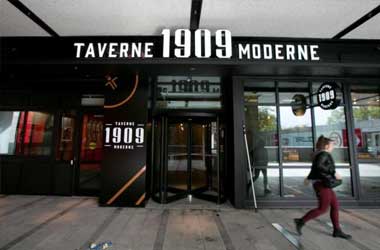 The forthcoming changes to Germany’s iGaming regulations have been deemed by a senior GVC Holdings executive as a dangerous and an ineffective move that may lead to local punters choosing to gamble on black market sites unencumbered by such restrictions.
The forthcoming changes to Germany’s iGaming regulations have been deemed by a senior GVC Holdings executive as a dangerous and an ineffective move that may lead to local punters choosing to gamble on black market sites unencumbered by such restrictions.
Martin Lycka, the director of regulatory affairs for GVC said the pending legislation in Germany will allow a free market for gaming firms of all stripes — online casino games, poker, slots and sports bets.
The online gaming industry in Germany has long awaited for the country’s parliament to finalize its “Fourth Interstate Treaty on Gambling“, which would permit the launch of a federal regulatory framework for gaming services.
Black Market Sites Will Be Beneficiary of Strict Rules
However, Lycka argued that many of the rules currently being considered are too strict. Due to the rules being over stringent, Lycka said that many licensed gaming firms in Germany will be prevented from offering products appealing to punters. This could, in turn, lead Germans toward black market sites.
Some of the more notable restrictions on German gaming services include the banning of live streaming on sports betting sites, a moratorium on gambling ads online and on the radio between 6 AM and 9PM, a five minute delay when a customer switches from one gambling site to another, and a cap of €1 per bet on virtual slots.
Lycka stated that the resulting gaming experience may sour German punters from patronizing legal sites. Due to the offshore locations of illegal gaming sites, Lycka said that they will have no compunctions about violating the rules to be set out by Germany. This means that legal sites will have no chance of competing with what illegal sites can offer to customers.
Spain, Italy, and Denmark Cited as Models
Lycka also pointed to a section in the treaty that allows for German regulators to record player data without any proof of problematic gambling behaviour.
While Lycka made it clear that some surveillance is necessary, he stated that the rules as they are written now do not differentiate between problem gamblers and responsible gamblers in terms of monitoring.
Lycka pointed to the examples of Spain, Italy, and Denmark as a model for what Germany could follow. According to Lycka, these countries were able to create a legal gaming industry that is profitable for operators while being compliant with EU laws and protecting consumers from the dangers of problem gambling.

 United States
United States United Kingdom
United Kingdom














